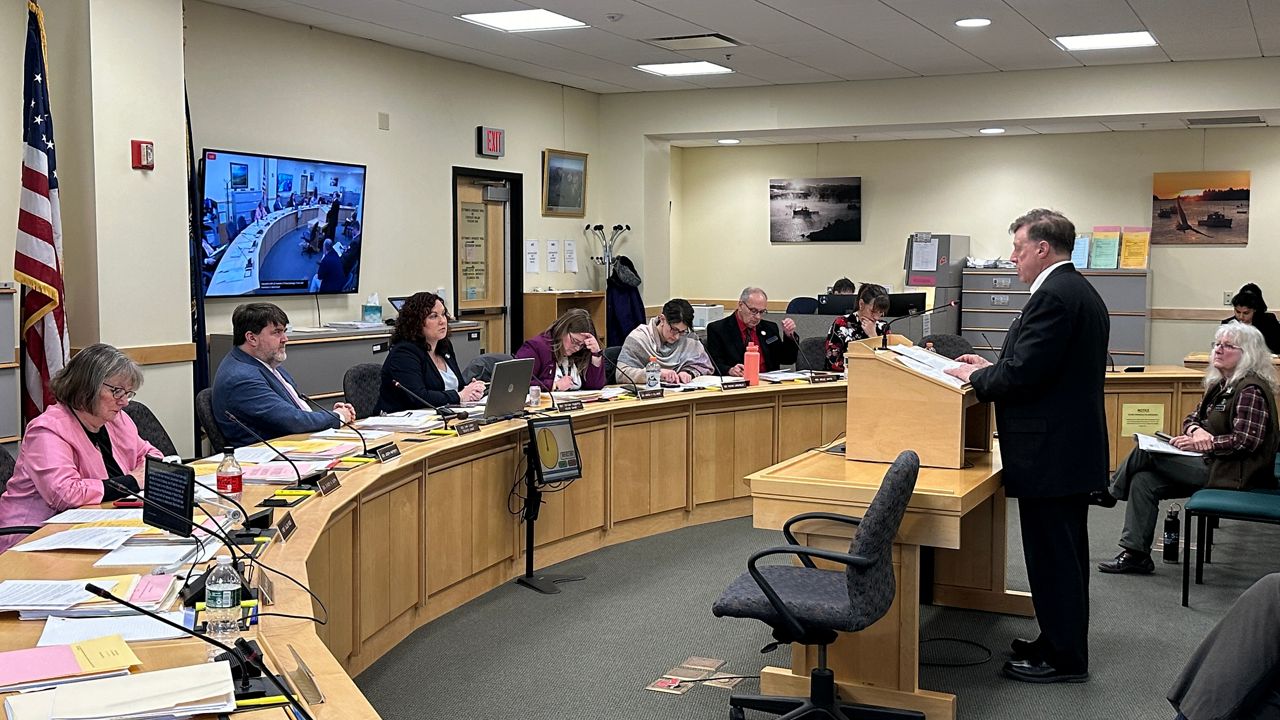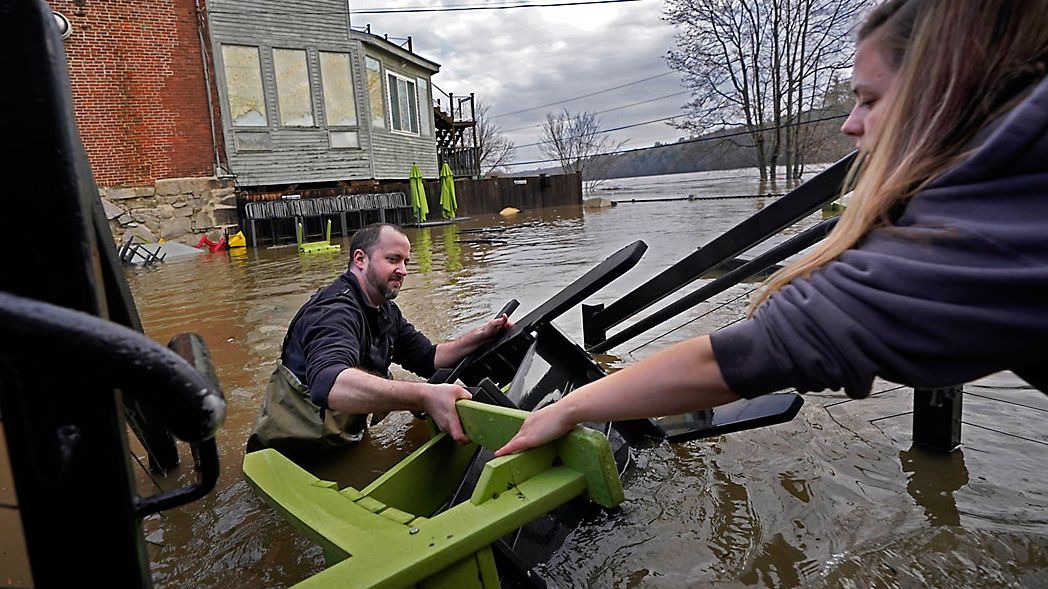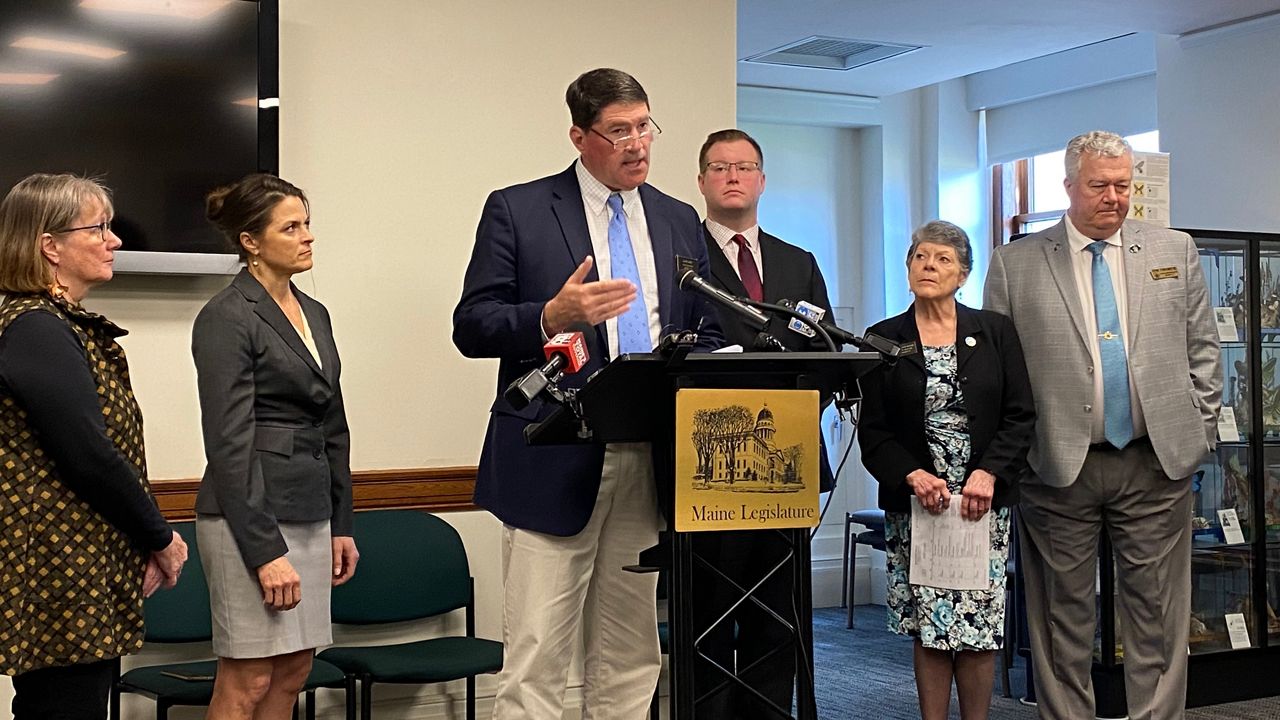Lawmakers from coastal and inland communities are backing a bipartisan bill to create a $50 million fund for small businesses hammered by three recent storms that dumped rain, flooded streets and knocked out power for days.
Sen. Craig Hickman (D-Winthrop) originally proposed the bill following a Dec. 18 storm that affected riverside communities in central Maine, including Hallowell, Farmingdale and Gardiner.
“Some of these businesses sustained such incredible damage they have only reopened in this last week,” he said. “That’s more than two months of lost revenue for their own budgets and lost wages for their workers.”
Just weeks later, destructive coastal storms in January added an estimated 500 businesses to the list of those needing help, Hickman told the Legislature’s Innovation, Development, Economic Advancement and Business Committee on Tuesday.
Gov. Janet Mills is sponsoring a separate piece of legislation that would also earmark $50 million in state funds, but that money would go to infrastructure needs in cities and towns.
Hickman said he hopes his bill will create an ongoing fund that will be ready when severe weather strikes local businesses again.
“It can almost stand as the state’s insurance for businesses that may need relief when these storms happen in the future and while we await money coming in from other places, this can be here for us,” he said.
Curtis Picard, president of the Retail Association of Maine, said his group created a relief fund following the December storm that received nearly 400 applications in just 10 days. And though they’ve distributed $400,000 to local businesses, the requests they received added up to $2.7 million.

He said some businesses had flood insurance, but their deductible is high. Others didn’t have it because of the cost.
And while some federal relief is available for businesses, that often takes the form of loans.
“It’s additional debt that businesses have a hard time taking on after you’ve been kicked when you are down,” Picard said.
Loggers across Maine have also been hit hard by the storms and would benefit from state funding, said Dana Doran, executive director of the Professional Logging Contractors of the Northeast.
He said a survey of loggers in Maine showed $2.6 million in storm-related losses, with the average for each company totaling about $51,000.
That’s because the storms closed roads and made bridges impassable, forcing the loggers to drive long distances — he mentioned one 80-mile detour — to get to local mills.
He also suggested the creation of a reclamation project because there are a lot of trees on the ground that will rot if they are not removed.
“The recent severe weather events and warmer than normal winters have spelled disaster for logging contractors in Maine,” Doran said. “To our knowledge, there are no relief programs, either federal or state, to help the logging community like there are for other agricultural businesses.”
Another supporter is Sen. Marianne Moore (R-Calais), who said her district in Washington County was “devastated by the January storms.”
“Many of my constituents are hurting,” she said. “Some are facing tens of thousands of dollars in needed repairs before they can even return to full operation. We must do something to help the businesses of our state recover.”
The committee will hold a work session on the bill in the coming weeks.









